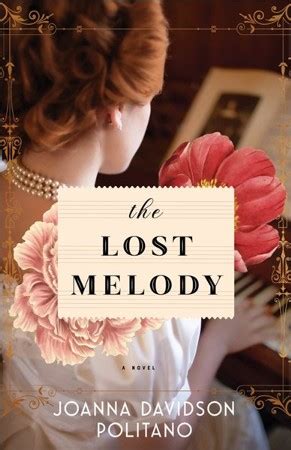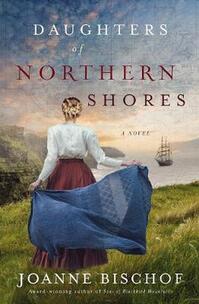|
Summary Lucy Claremont's family treasured the magic of the past, and her childhood fascination with stories of the high seas led her to become a marine archaeologist. But when tragedy strikes, it's Dashel, an American forensic astronomer, and his knowledge of the stars that may help her unearth the truth behind the puzzle she's discovered in her family home. Two hundred years earlier, the seeds of love are sown between a boy and a girl who spend their days playing in a secret sea cave, while the privileged young son of the estate looks on, wishing to join. As the children grow and war leads to unthinkable heartbreak, a story of love, betrayal, sacrifice, and redemption unfolds, held secret by the passage of time. As Lucy and Dash journey to a mysterious old estate on the East Sussex coast, their search leads them to a community of souls and a long-hidden tale that may hold the answers--and the healing--they so desperately seek. Positives This book explores themes of hope so sweetly and poetically. It’s one of my favorite themes to see popping up in books. The romantic interests really prove their love for each other—they don’t just say it a couple times and kiss several more times and call it good. It also portrays verbal abuse realistically through one of its dual storylines—something sorely lacking in fiction as a whole. Dash is literally the best. That’s all I have to say. I’ve decided to include the point of view in the positives, even though it made it hard for me personally to get into the story. I adore first/third person deep point of view so I feel like I’m in a character’s head seeing the world the way they do. Set the Stars Alight has more of a narrator-feel, like someone from the outside is watching Lucy and Dash and Frederick and Juliette, and telling us very poetically what’s going on. This is a neat addition. It makes us feel like we’re listening to one of Simon’s stories or Killian’s ballads. But for me, this made it a little tricky for me to get into the character’s head. I didn’t feel like I understood what was driving them to make certain decisions. This isn’t because their motivations weren’t portrayed, I just had a hard time picking up on it because of the format. As a result, it was a little hard for me to get through the book. I also felt like some events were quickly glossed over or I was on the outside looking in for some important events. THIS HAD NOTHING TO DO WITH THE AUTHOR. It was simply my reading style. It was not as fast-paced as I was expecting. I was expecting more of a treasure hunt type feel. Which it does have. But it's really more about the characters discovering themselves and each other. And you know what, I don't even mind, because the emotional tension in this book is on point. The climax, however, was what sold me. I would buy this book for the climax alone. (And I had lots of other things I loved about it!) Those scenes where Lucy and Dash are trapped in the cave together—perfection. Also, look at that cover!!! It's gorgeous. Negatives None. Conclusion Set the Stars Alight is a unique book that might not be for everyone. But I think it would be a loss to not give it a read.
0 Comments
Summary The New York Times bestselling author of Redeeming Love and A Voice in the Wind pens a captivating tale of suffering, seeking, and redemption set in Appalachia in the 1850s. In the misty peaks and valleys of Appalachia roams the sin eater―a myth as much as a man, burdened with absolving the sins of villagers passing from this life to the next. But when a young girl uncovers the dark secret behind the tradition, she vows to show her village the truth. All that matters for young Cadi Forbes is finding the one man who can set her free from the sin that plagues her, the sin that has stolen her mother’s love from her and made Cadi wish she could flee life and its terrible injustice. But Cadi doesn’t know that the sin eater is seeking as well. Before their journeys are over, Cadi and the sin eater must face themselves, each other, and the One who will demand everything from them in exchange for the answers they seek. Positives This book doesn’t shy away from the hard. Physical, verbal, and emotional abuse. Shame. Isolation. Murder. Grief and loss. It dives into it all and mostly keeps its head above water (one instance of the opposite stood out to me and I’ll detail it in Negatives). This would be why it made my Best Reads of 2021 list. I honestly liked Fagan more than Cadi. That boy suffered. He lost the approval of his dad, which is painful enough. But then the fact that his dad beat him and tried to kill him on top of that? Fagan just seemed to sacrifice more than Cadi did for the sake of the story goal, and I wish he’d gotten more page time. But that’s not to say I didn’t like Cadi! She has a great narration voice and her pain was beautifully, heartbreakingly scrolled across each page. I liked that this book acknowledged that hard and horrible things happen to young people and that they feel the pain just as much as an adult would. And that they are as capable of standing up for a truth they believe in as anyone else. The arc of how God changed a broken village from something ugly and twisted into something beautiful certainly shines. And even though the novel isn’t all that fast-paced, it kept me engaged to the very last page. Negatives The conclusion with Cadi’s mother didn’t quite work for me. This woman has horrifically abused Cadi for years, to the point that this ten-year-old wished she was dead. And at the end, she was just like, “Oh, I never meant it, I always loved you.” That’s not how it works. In a situation of abuse (which I have researched for a story of my own), there needs to be a gradual building of trust back. It is often not healthy to return to an abuser until a very long time afterward, if at all. A simple apology can’t just erase years of abuse. The book also makes use of excessively long passages of Scripture in the narrative. Most of the time this is done very well and it helps push the narrative forward. I’m definitely not against putting Bible verses in a story, please don’t hear me saying that. But when it literally spans four pages and the story comes to a complete stand still for someone to quote Scripture for those four pages? That’s a bit much. A Christian book does need to include explicit truths about Jesus. But if it’s going to go anywhere, it needs to be a great story first. If I randomly put four pages of quotes from another book in my novel, and the quotes didn't affect the scene at all, an editor would remove it immediately. While The Last Sin Eater is marketed as the Gospel to those who wouldn’t hear it another way, it seems to be targeting already converted audiences to remind them of the Gospel. (Someone who isn’t interested in the Gospel isn’t going to read four pages of Scripture inserted into the narrative.) Which is absolutely fine! We need books like that. But the marketing was a little deceptive. Another aside—I don’t remember reading in the story anywhere what year it was or where they were living. A little disorienting at first. Conclusion The Last Sin Eater has a bump or bruise or two along the way. But overall, this is a story that isn’t afraid to acknowledge the harsh realities of broken humans—and watch them grow past them. |
Rachel's Reads
Hi there! Rachel again. Check out this section for book reviews and cover reveals of some of my favorites! Archives
June 2023
Categories
All
|


